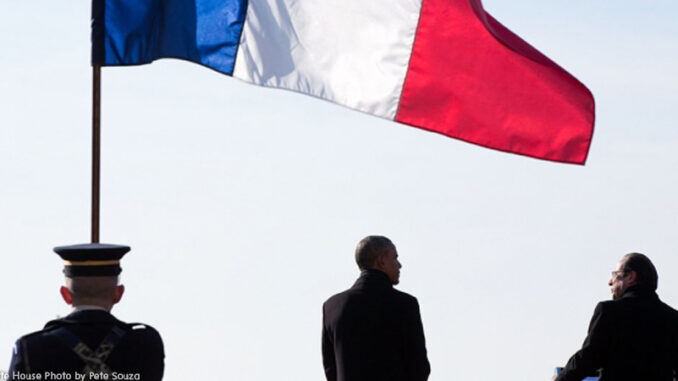
Political Crisis in Greece

Western governments, including the United States, are increasingly worried about Greece. Will the Greek government be able to get the country’s economy in order? Or will it fail to do so, possibly forcing Greece to leave the eurozone? The eurozone is the financial partnership of European countries that use the euro as its currency.
Experts agree that a Greek departure from the eurozone will further weaken other economies struggling to emerge from the long global recession. However, they do not know how serious this effect might be. Three months ago, Greece reluctantly agreed to strict terms set by the European Union, (EU) the International Monetary Fund (IMF), and the European Central Bank (ECB). In return for the financial help of these institutions, the Greek government pledged to make steep cuts in spending and reduce its very large debt.
Events in Greece are now threatening to unravel this debt deal. The Greek government has been struggling to push through “austerity” measures–sharply cutting spending, reducing social programs, and laying off government workers. These steps have been very unpopular with Greek workers who have lost jobs and benefits and suffered other economic hardships. Angry street demonstrators in cities throughout Greece have put pressure on the government to back down.
Two weeks ago, Greece held an election to choose members of parliament who would form a new government. Many voters supported candidates belonging to parties of the extreme left and right. These candidates by and large oppose the government’s austerity plans. The election resulted in no single party gaining enough support to form a new government. Political leaders then tried over several days to put together a government of many different parties. Without a workable government, an economic crisis only worsens. Greece’s politicians failed to reach agreement, so another election will take place in June. Recent polls indicate that a far-left party named Syriza could lead in this election. If Syriza has a decisive win, or is able to get support from other parties, it will be able to form a government that more than likely will oppose the debt deal and the austerity measures.
If Greece takes this step, what might happen? The three lending institutions (EU, IMF, and ECB) could withdraw their aid. Greece would default, or stop paying its debts. The Greek government might then have to give up the euro and start issuing its own currency to meet ongoing expenses. Some experts, however, believe that other European governments would not want Greece to leave the eurozone. These governments, they say, fear that such an event would be a serious blow to Europe’s already shaky financial system, possibly causing economies to further slide and even major banks to fail. A Greek withdrawal might even badly affect the Asian and American economies, which have important trade and financial links to Europe. Therefore, in the view of these experts, another deal would have to be worked out even if Greece stops paying its debts.
What Do You Think? What effect do political developments have on a country’s economy? How do economic developments influence government? In stating your views, refer to the ongoing Greek political/economic crisis as an example.
Socialist Candidate Wins Presidential Election in France
Voters in France chose Francois Hollande as that country’s new president in an election held on May 9th. With just under 52 percent of votes, Hollande defeated Nicolas Sarkozy, who has been president of France since 2007. Hollande was the socialist candidate, while Sarkozy had the backing of conservatives.
Like other European countries, France has faced serious economic problems as a result of the world financial crisis that began in 2008. President Sarkozy promised to cut government spending to reduce the country’s large budget deficit. Success did not come quickly enough for French workers, and Sarkozy’s policies became more and more unpopular. Hollande’s candidacy benefited from this growing discontent.
Hollande is the first socialist to win the French presidency since the 1980s. France’s socialists tend to favor more government spending to aid economic growth. They oppose deep spending cuts that would balance the budget while placing hardships on citizens. As the socialist candidate, Hollande has promised to increase the minimum wage, hire more teachers, and lower the retirement age from 62 to 60 for some workers. Hollande plans to help pay for these benefits by raising taxes on big business and wealthy individuals.
Hollande’s victory is expected to have a great effect not only on France but also on the other countries of Europe that have the euro as their currency. In a victory speech given in Paris, Hollande said he would work to turn France and its European partners from “austerity,” or sharp government spending cuts, to reasonable levels of spending that would encourage economic growth. He called for the reworking of a recent treaty between the governments of euro countries that places strict limits on their spending. Conservative leaders President Sarkozy of France and Chancellor Angela Merkel of Germany backed this agreement.
Sarkozy is the latest European leader to face rejection because of voters’ opposition to the austerity measures. In Germany, Angela Merkel’s conservative party suffered a heavy loss to socialists in a parliamentary election held in North Rhine-Westphalia, Germany’s largest state. In Greece, voters in a recent parliamentary election turned against the two main parties that supported drastic budget cuts. A greater number of votes went to parties on the extreme left and right that opposed austerity measures.
What Do You Think? How should Europe’s leaders deal with the economic crisis facing their continent? Do you think recent economic difficulties are serious enough to eventually threaten democratic government in some European countries? Why or why not?
Putin Becomes Russia’s President for Third Time
In early May, Vladimir Putin was sworn in as president of Russia. The celebration marked Putin’s return to the presidency after a period of four years in which he served as prime minister. Before becoming prime minister, the country’s second most important post, Putin had served two previous terms as president.
Putin won his third presidential term in a highly disputed election held in March. The reported results gave Putin 60 percent of the vote. However, Putin opponents charged widespread fraud, saying many people had voted more than once. In the weeks after the election, mass protests against Putin took place in the streets of several Russian cities. Demonstrators repeatedly clashed with police, and hundreds of them were arrested.
Putin took his oath of office at Grand Kremlin Palace in the capital city of Moscow. The hall that was once the throne room of Russia’s all-powerful tsars. In a short speech, he said that Russia was “entering a new phase of national development”. He praised the work of outgoing president, Dmitry Medvedev, an ally who will now serve as prime minister Putin’s inaugural address promised Russians a bright future, but the country faces many challenges. The economic growth rate is slowing, and unrest continues in southern areas wanting independence. Russia’s political system under Putin has been known for its corruption and disregard of democracy and citizens’ rights. If reforms do not come, political experts believe that opposition to Putin’s rule will grow. How Putin deals with his opponents in the weeks ahead will be a clear sign of whether or not his administration is changing course.
